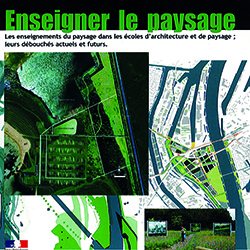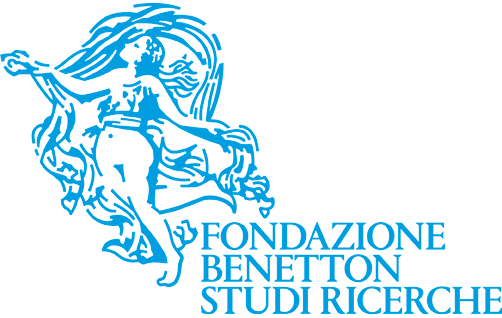
Landscape architecture training in Europe
considerations for common ground, similarities and differences
Viola Corbari
Landscape scholarships – third edition, 2017/2018
Subject area Theories and policies for landscape
tutor: Luigi Latini (chairman of the Scientific Committee), Simonetta Zanon (head of Landscape projects area)
Research with the support and collaboration of UNISCAPE
The development of landscape architecture as an academic discipline started in Europe in the 20th century, at different times depending on the country and in different academic fields related to agronomy, life sciences, applied arts and architecture. The relatively recent history of this process still sees a shared reflection on the evolution and status of the subject in a European context as partially unprecedented. Therefore, the research entails an international survey to frame landscape architecture training in Europe, with the aim of identifying its specific features and possible common approaches.
Seven case studies were considered (France, Germany, Italy, the Netherlands, Portugal, the UK and Spain), for which the evolution of landscape architecture was outlined throughout the 20th century until today, highlighting its main features and dynamics, cultural derivations, foreign influences, and the key personalities and institutional figures that have led its development. The analysis focused on the training and how it relates directly to the professional world, first of all because the formalisation process of this discipline is closely linked to the recognition of this profession, and because by exploring the various branches of this profession it is possible to identify the very goals of the training efforts.
Moreover, a more geographically extensive overview of the current training programmes in Europe provides a general framework that should be analysed based on the study conducted. Within such a complex topic there is no pretension of being exhaustive, but general assumptions are outlined, which can be the starting point for subsequent considerations to evaluate a future common ground at a European level and capable of not denying regional specificities.
The research, carried out for Fondazione Benetton Studi Ricerche, relied on the support and focus of Uniscape, an international academic network founded in 2008 with the aim of encouraging the implementation of the European Landscape Convention. (V.C.)
Viola Corbari. An architect who graduated with honours from Milan’s Polytechnic with a thesis on the photographic representation of landscape, supervised by Massimo Venturi Ferriolo. Viola collaborates on architectural design and landscape architecture studies as a project coordinator. Works carried out include the 2015 Milan Expo landscape project (for PAN associati, Milan) and the Vicenza Park of Peace project (for Franco Zagari, Rome). In 2017, Viola carried out teaching activities for the Master’s Degree in Landscape Design of CURSA (University Consortium for Socioeconomic Research and for the Environment), (University of Molise, University of Tuscia, University of Ferrara) in the Executive Landscape Design course.
